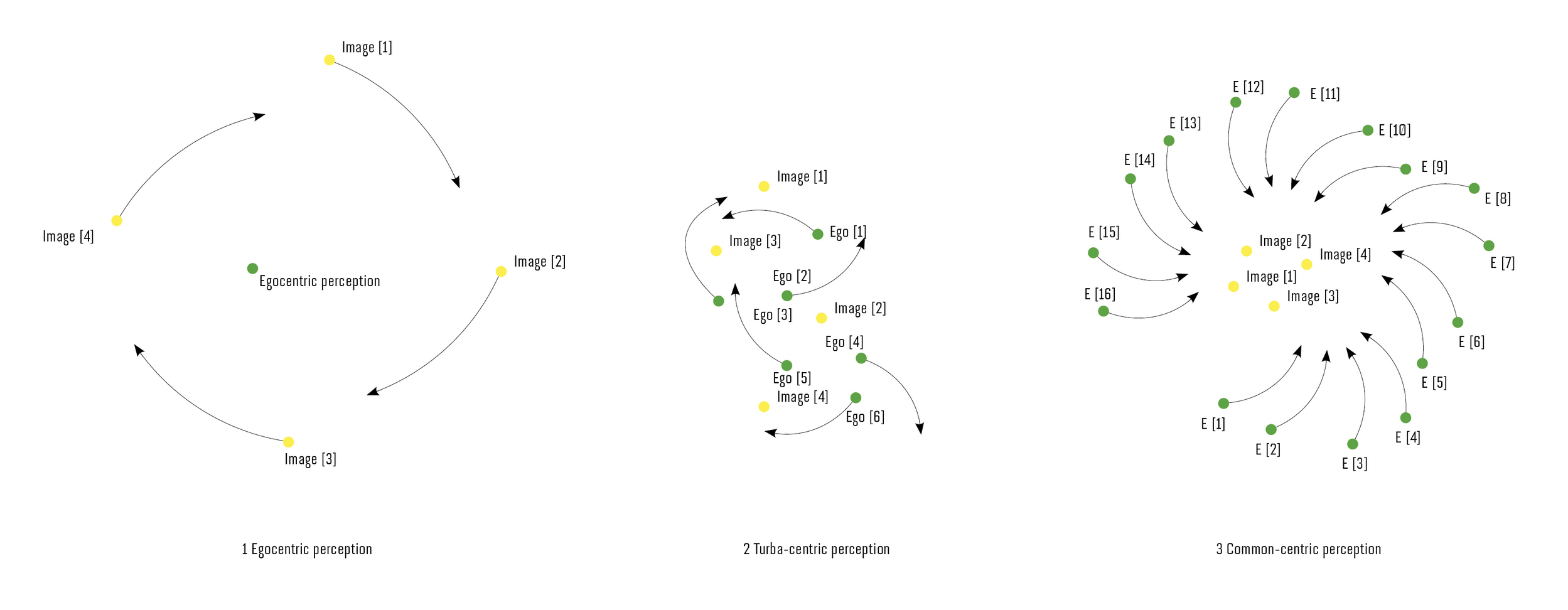10
RECIPROCAL ROOMS OF PERCEPTION AND SOCIAL RESONANCE
The social unrest in the first decades of the 21st century seems to indicate that global data can only be focused on situations of concrete threat or fascination. If the threat or fascination disappears, the data stream melts away into many small rooms of perception that hardly feel up to the global challenges. In this reduced form of participation in global events, the sense of being affected by international problems, which are, however, caused by the interplay of individual behavior, also diminishes.
This increasingly obvious cognitive distortion could indicate that the human mind is not yet able to process the manifold information, even when processed with algorithms. The data system collects everywhere where smartphones with Internet access are available. The fear of an ongoing statistical survey of personal behavior as a loss of privacy (a transparent person) is quite justified. This behavior also corresponds to the deliberate ignorance that data is already being collected on an ongoing basis, which is already available from large and small intermediaries and providers. The question seems to be whether companies and special information services use the data without involving the population. Or whether it will be possible to develop generic and iterative solutions for challenges, which only can be mastered by swarm intelligence and not a single person. Such as environmental pollution, resource use, clean water, clean energy, and much more.
The protection and monitoring of individual data flow is, therefore, the most important challenge that should be developed in parallel. In the best case led by a critical group of experts who have no conflict of interest with business and politics. Viewed in this way, the entity of the data system presents itself as the interconnection of a comprehensive somatic room of perception and a comprehensive virtual room of perception, which puts the view of the global population as an open-source society up for discussion.
The entity of the data system turns out to be a liberator and spy at the same time. A double agent. And yet so powerful in creating a global perceptual space that it's hard to look away. But without an equivalent level of data protection in all countries of the world, the exchange of data will not be straightforward.
Therefore, personal retreats and digital-free zones are still very important for the development of personal potential. To be subject to constant data recording corresponds to the unnatural environment of a laboratory. Hence, it should be left to everyone's own freedom of choice as to how much personal data should be shared with the public.
Scaling of individual behavior to large collective patterns is therefore only meaningful in one approach: When the existing global flow of information is used to connect many rooms of perception with each other without violating personal data rights. Possibly, a smooth transition from an egocentric and confused (turba-centric) world view to the development of a common perspective can be described in this way. Most probably, however, only if the experience gained from dynamic online maps of the spread of epidemics is also used to spread food chains, clothes, toys, or garbage, for example.
